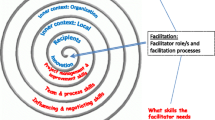Abstract
This paper compares three approaches to improving policymaking: systems analysis, disjointed incrementalism, and the clinical approach (elsewhere referred to as the planned change or human relations approach or organization development). It pays particular attention to the way in which these three approaches view organizations and the role of the expert in reform-mongering.
It is suggested that systems analysis and incrementalism are quite compatible and that, in fact, systems analysis has, in large measure, accepted the incrementalists' view of the policymaking process. But this acceptance has served not so much to strengthen policy analysis as to increase awareness of its weaknesses.
The clinical approach, on the other hand, holds out the promise of strengthening policy analysis, since it focuses on changing organizations, an area in which both systems analysis and incrementalism are weak and, as action-oriented approaches, hampered by their weaknesses. The potential contributions of the clinical approach are considered as well as the likelihood of an eventual synthesis.
Similar content being viewed by others
References
Braybrooke, David, and Charles E. Lindblom, A Strategy for Decision. New York: Free Press of Glencoe, 1963.
Popper, Karl R., The Open Society and Its Enemies, pp. 155–160. Princeton, N.J.: Princeton Univ. Press, 1950.
Diesing, Paul, Reason in Society. Urbana: Univ. of Illinois Press, 1962.
Lindblom, Charles E., “The Science of ‘Muddling Through,’” Public Administration Review, 19 (Spring 1959), 79–88.
Quade, Edward S., ed., Analysis for Military Decisions. Chicago: Rand McNally, 1964.
Quade, Edward S., and Wayne I. Boucher, eds., Systems Analysis and Policy Planning: Applications in Defense. New York: American Elsevier, 1968.
Schlesinger, James R., “Systems Analysis and the Political Process,” Rand P-3464. Santa Monica, Calif.: The RAND Corporation, June 1967.
Dror, Yehezkel, Public Policymaking Reexamined. San Francisco: Chandler, 1968.
Schultze, Charles L., The Politics and Economics of Public Spending. Washington, D.C.: The Brookings Institution, 1968.
Wildavsky, Aaron, “Rescuing Policy Analysis from PPBS,” Public Administration Review, 29 (March/April 1969), 189–202.
Lindblom, Charles E., The Policy-Making Process. Englewood Cliffs, N.J.: Prentice-Hall, 1968.
Wildavsky, Aaron, The Politics of the Budgetary Process. Boston: Little, Brown, 1964.
Downs, Anthony, Inside Bureaucracy. Boston: Little, Brown, 1967.
Goffman, Erving, Asylums, pp. 375–376. Garden City, N.Y.: Doubleday Anchor, 1961.
Lippitt, Ronald, Jeanne Watson, and Bruce Westley, The Dynamics of Planned Change, pp. 51–68. New York: Harcourt, Brace and World, 1958.
Lindblom, Charles E., The Intelligence of Democracy, pp. 165–290. New York: Free Press, 1965.
Schorr, Alvin L., “Public Policy and Private Interest,” paper presented at the Conference on Public Policy and Social Science, Rutgers University, November 23–26, 1969, p. 16.
Weinshall, Theodore D., “The Communicogram,” in J. R. Lawrence, ed., Operational Research and the Social Sciences, pp. 619–633. London and New York: Tavistock Publications, 1966.
Clark, James V., “A Healthy Organization,” California Management Review, 4 (Summer 1962). Reprinted in Warren G. Bennis, Kenneth D. Benne, and Robert Chin, eds., The Planning of Change, 2nd ed., pp. 282-297. New York: Holt, Rinehart and Winston, 1969.
Archibald, K. A., “Alternative Orientations to Social Science Utilization,” Social Science Information, 9 (April 1970).
Bennis, Warren G., “Theory and Method in Applying Behavioural Science to Planned Organizational Change,” in Lawrence, op. cit. in entry for Weinshall [18], pp. 68, 71–72.
Churchman, C. West, and F. E. Emery, “On Various Approaches to the Study of Organizations,” in Lawrence, op. cit. in entry for Weinshall [18], pp. 77–84.
Bennis, Warren G., Kenneth D. Benne, and Robert Chin, eds., The Planning of Change. New York: Holt, Rinehart and Winston, 1st ed., 1961, and 2nd ed., 1969.
Schein, Edgar, Warren Bennis, and Richard Beckhard, eds., Addison-Wesley Series on Organization Development. Reading, Mass.: Addison-Wesley, 1969.
Jantsch, Erich, “From Forecasting and Planning to Policy Sciences,” Policy Sciences, this issue.
Emery, F. E., and Einar Thorsrud, Form and Content in Industrial Democracy. London and New York: Tavistock Publications, 1969.
Thorsrud, Einar, and F. E. Emery, Toward a New Company Organization. London and New York: Tavistock Publications, in press.
Author information
Authors and Affiliations
Additional information
The first version of this paper was prepared for presentation to the Systems Analysis Group, Canadian Treasury Board.
Rights and permissions
About this article
Cite this article
Archibald, K.A. Three views of the expert's role in policymaking: Systems analysis, incrementalism, and the clinical approach. Policy Sci 1, 73–86 (1970). https://doi.org/10.1007/BF00145193
Issue Date:
DOI: https://doi.org/10.1007/BF00145193




